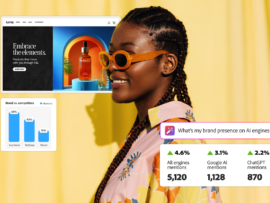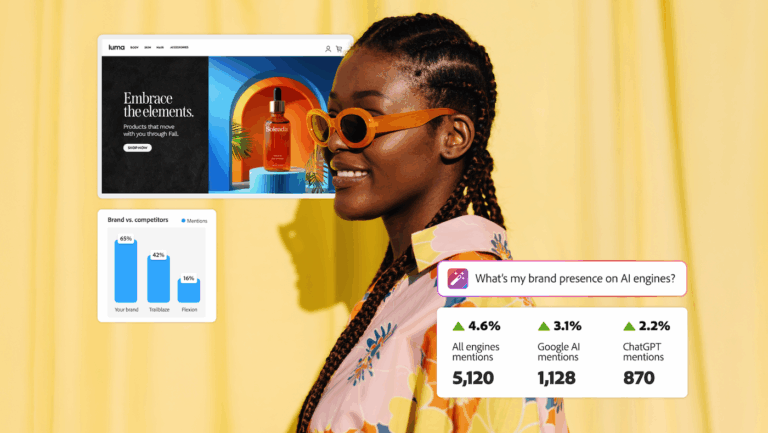
As more people increasingly rely on AI-powered chatbots like ChatGPT and Gemini to search for products, receive recommendations, and make purchase decisions, Adobe has introduced a new enterprise tool called LLM Optimizer, which is designed to help brands maintain online visibility.
Think of it like this: just as companies used to work hard to rank high on traditional search engines, they now need to think about how their information appears when you ask an AI chatbot a question. Adobe’s LLM Optimizer could become the go-to tool for this new frontier, which some are even calling “Generation Engine Optimization” or GEO.
What does Adobe’s LLM Optimizer do?
The Adobe LLM Optimizer provides businesses with essential tools to track, analyze, and improve how their branded content appears in AI-generated answers. One core function is its ability to monitor AI-driven traffic, providing companies real-time insights into how AI chatbots and AI-powered browsers are surfacing a company’s content in response to user queries.
Beyond tracking, the Optimizer guides content teams, highlighting gaps in brand visibility across both internal and external platforms. It delivers actionable recommendations, from updating site metadata and FAQs to ensuring better placement on widely referenced sites such as Wikipedia.
Built for wide enterprise adoption
Adobe says LLM Optimizer is designed for wide adoption inside organizations; it fits into the workflows of SEO leads, content strategists, and digital marketers. For companies using Adobe Experience Manager Sites, the LLM Optimizer is fully integrated. Adobe confirmed it’s also available as a standalone application for those not already tied into the Adobe ecosystem.
LLM Optimizer supports enterprise-grade protocols including Agent-to-Agent (A2A) and Model Context Protocol (MCP), making it easier to plug into third-party tools and agency systems.
Surge in using AI tools for retail and travel purposes
Adobe’s announcement comes at a time when AI tools are quickly becoming central to how people discover and interact with content and products online. According to Adobe Analytics, traffic to US retail websites from generative AI platforms surged by 3,500% between July 2024 and May 2025. During the same period, travel sites saw a 3,200% increase in AI-driven traffic.
This shows that consumers are finding value in these conversational AI experiences when looking for products, travel ideas, and deals.
Loni Stark, vice president of strategy and product at Adobe Experience Cloud, emphasized this shift in the press release about LLM Optimizer, stating, “Generative AI interfaces are becoming the go-to tools for how customers discover, engage and make purchase decisions, across every stage of their journey.” She added, “With Adobe LLM Optimizer, we are enabling brands to confidently navigate this new landscape, ensuring they stand out and win in the moments that matter.”
Read our coverage of eight ways that businesses are using AI in 2025.

